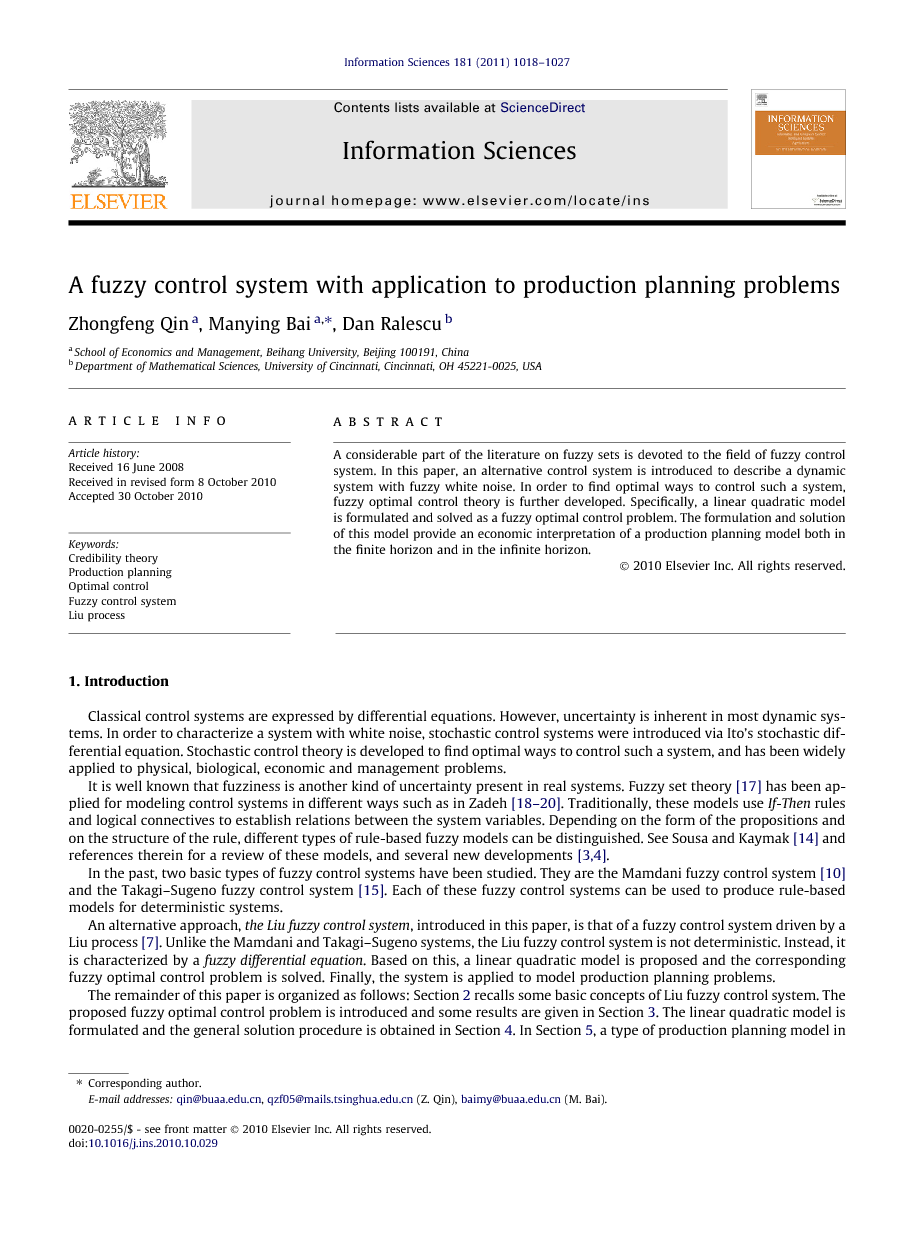ترجمه فارسی عنوان مقاله
سیستم کنترل فازی با نرم افزار برای مشکلات برنامه ریزی تولید
عنوان انگلیسی
A fuzzy control system with application to production planning problems
| کد مقاله | سال انتشار | تعداد صفحات مقاله انگلیسی |
|---|---|---|
| 5642 | 2011 | 10 صفحه PDF |
منبع

Publisher : Elsevier - Science Direct (الزویر - ساینس دایرکت)
Journal : Information Sciences, Volume 181, Issue 5, 1 March 2011, Pages 1018–1027
ترجمه کلمات کلیدی
- نظریه اعتبار - برنامه ریزی تولید - کنترل بهینه - سیستم های کنترل فازی - فرایند لیو -
کلمات کلیدی انگلیسی
Credibility theory,Production planning,Optimal control,Fuzzy control system,Liu process,

